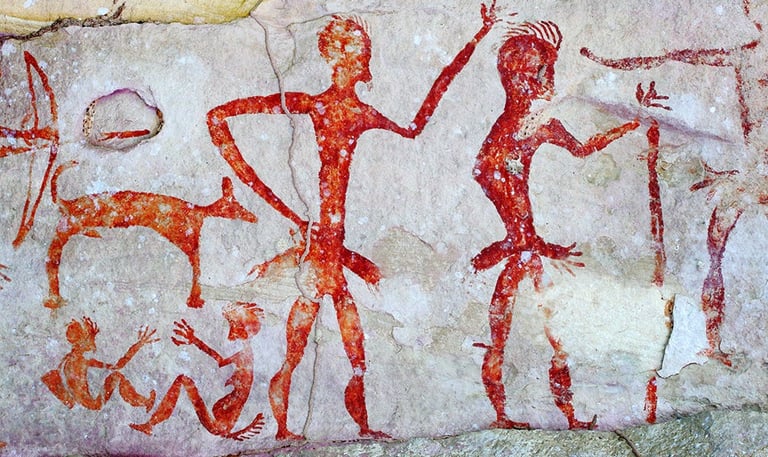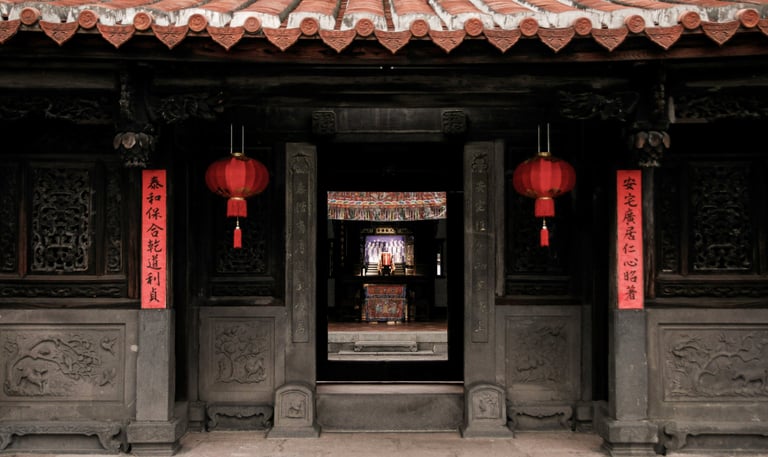
Courses
Discover David's courses on spirituality, religion, and science at the University of Hong Kong
Explore David's Courses
Discover spirituality, religion, science, anthropology and sociology through David Palmer's courses at the University of Hong Kong.


This is a journey to explore different cultural, spiritual and religious traditions, and different academic theories in philosophy, psychology, anthropology and sociology.
“
The New Mindscape: Spirituality, Religion and Social Change (CCHU5014)
The aim of this course is to engage you in a reflection on spirituality and religion, and on their relevance to contemporary social change. It will aim to do so in a manner which is personally meaningful, appropriate for critical analysis, and relevant to social action. Open to believers, agnostics, skeptics, atheists and seekers, this course will give you exposure to, and an opportunity to engage with, the spiritual heritage of humanity.
Science and Religion: Questioning Truth, Knowledge and Life (CCHU9061)
Science and religion are two of the most significant influences shaping human life and culture. Are they in conflict or in harmony? This course will encourage students to question their assumptions about both science and religion and the relationship between the two, and to gain new insights on the meaning of truth, knowledge and life. We will consider the intersection of science and religion in the following questions : “What is true?” “What is real?” “What counts as legitimate knowledge?” “Do emotion, passion and faith have a role in science?” “Does rationality have a role in religion?” “What are the moral dimensions of science and religion?” “Where do we come from and where are we going?”
Modern Social Theory (SOCI3024)
How do individuals create social worlds through their interactions? What is the nature of social reality and its dynamic structures? How does social reality shape the way we think, know, talk about and act in the world? What are the broad trends of social transformation, from modernity to post-modernity, globalization, and beyond? Building on the insights of classical sociological theory, this course will provide an overview of the main currents, themes and debates in modern and contemporary Western social theory, with a primary focus on sociological and anthropological contributions. The course will also focus on the practical application of theoretical concepts to situations of everyday life and social issues in Hong Kong, China and the world.
Introduction to Anthropology (SOCI1003)
What makes us human? Are our ancestors apes? Is gender inequality a product of biology or of culture? Why are there different races and ethnic groups? Why do people believe in religion? Are humans naturally aggressive or peaceful? How does our evolutionary history and our cultural conditioning affect how we think, how we live with each other, and how we deal with problems and crises? In this course we will discuss these questions from the perspective of anthropology, the “science of humanity”. We will draw on the knowledge and insights which have been accumulated in the discipline, and also consider how research methods and theoretical models are elaborated and debated by anthropologists. How can we generate scientific knowledge about human culture? Is it even possible? And how can this knowledge be used? Finally, we will consider the relevance of anthropological perspectives and methods for understanding and dealing with issues such as gender, ethnicity, development, the environment, and globalization.
Traditional Chinese Society (SOCI2052)
This is not a course on 5000 years of Chinese history, nor is it a survey of a civilization as diverse as that of Europe. We won’t be seeking for an idealized traditional Chinese society as it existed before modern times. Rather, we will learn to use some of the conceptual and methodological tools of anthropology, to bring to light the social forms of traditional culture, and to analyze how traditional concepts and social relations continue to operate and change in contemporary society. We will examine how the following themes are conceived and expressed in traditional Chinese thinking and society: body; gender; family; land and space; ritual; face and social relationships; morality, money and power; and spirituality. Using an anthropological approach to Chinese society, the course aims to explore what the Chinese cultural and social experience can teach us about what it means to be human, and to critically evaluate what Chinese culture can contribute to an emerging global civilization.


Faith, Religion and Business (MFWM 7013, with C. K. Leung)
This course explores the intricate relationship between religion, business, wealth, and leadership. Founders and leaders of family enterprises often ground their leadership philosophy, business practices, and investment decisions in explicit or implicit religious faith or spiritual beliefs. These values can shape not only their approach to creating and managing wealth but also their philanthropic initiatives and their efforts to build a legacy of contribution to society. In this course, we will examine how religious traditions have profoundly influenced the norms and practices of leadership, business, and philanthropy. By drawing on key social scientific concepts and exploring diverse religious traditions, we will uncover how faith and spirituality intersect with commerce and leadership across cultures and historical contexts.
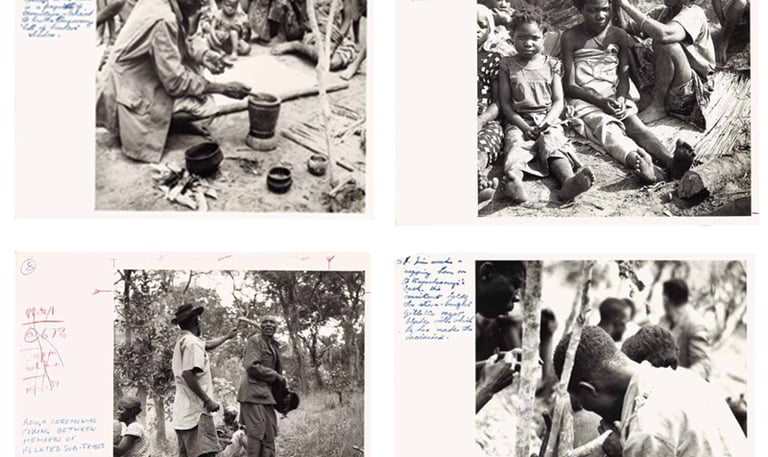

Anthropological Field Methods (ANT 5610, CUHK, 2008)
The purpose of this course is to initiate students into the practice of ethnography through the reading of classical, experimental, and applied ethnographic texts; and the writing of short ethnographic texts based on observation and interviews. Intended outcomes of the course are as follows: (1) to increase students’ skills of systematic observation, description, and analysis of social situations, which can be applied in any social/professional context or intellectual pursuit; (2) to develop students’ critical awareness of the process of knowledge production in the social sciences; (3) to open the possibility of ethnographic encounters becoming points of initiation into a journey of self-questioning.
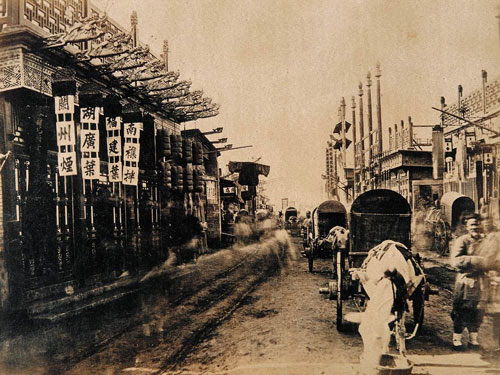

Religion, Society, and Politics in 20th Century China (RST 5120, CUHK, taught in 2005)
Religion has been a key issue at each stage of the reinvention of China as a modern nation-state. This course will study the evolution of religion in its relations with the Chinese state and society from 1898 to the present. Topics covered will include religion in Kang Youwei’s reform program; the Boxer rebellion; early Republican state expansion and local religious power structures; the May Fourth movement and anti-religious campaigns; the rise of sectarianism in the Republican era; adaptations of Christianity, Buddhism, Daoism, and Islam to modern Chinese social and political contexts; the Chinese Communist Party and religion; Maoism, millenialism, and messianism; the post-Mao religious resurgence; new religious movements and sectarian revivals; and religion and ethnicity, civil society, and geopolitics in the second half of the 20th century. The aim of the course will be to understand how religion has been transformed throughout the tumultuous years of 20th-century China, to analyse the complex dynamic of state-religion relations, and to trace the links between religious and other social and political issues during this period.
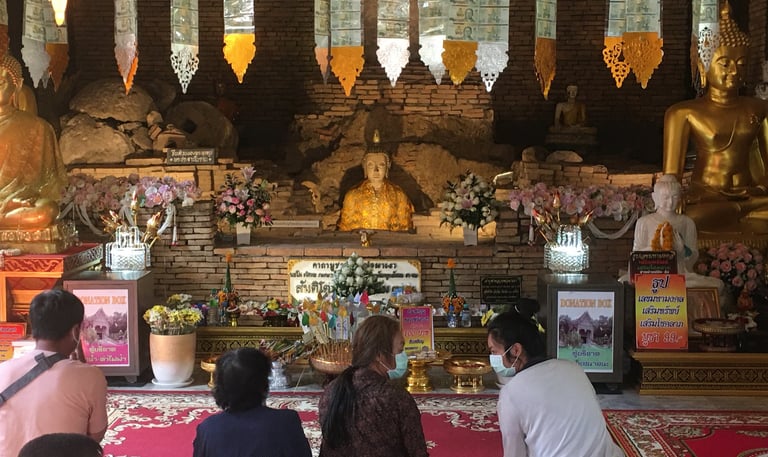

Anthropology of Tourism (SOCI 2055)
Tourism has become one of the world’s largest and fastest-growing economic sectors, an integral part of middle class life around the world, and the most prevalent way in which most people experience other cultures and societies in a context of globalization. Tourism is an industry in which travel experiences are invented, packaged and marketed as consumer products. The aim of this course is to “unpack” these products and experiences, to unveil the social, cultural and political processes at work in the generation of “tourism” as specific type of modern activity, and in the influence of tourism on cultural and social change, both among hosts and guests. The course will focus on the emergence of new forms of “sustainable” or “ecological” tourism in the Third World, which will be used as a prism to examine issues of globalization, sustainable development, and power relations between the First and Third worlds.
Seminars
Ethnicity, Religion and Politics in the Anthropology of the Southeast Asian Borderlands (Graduate seminar: IHSS 6005, 2020, with Joseba Estevez)
This seminar will focus on the anthropological study of ethnic minorities in the highlands of Southeast Asia, often known as “Zomia”, with specific attention to the Sino-Lao-Viet borderlands. We will consider key issues in the conceptualization of this region and its ethnic dynamics as a field of research; the generation and application of core anthropological concepts and theories in research on this region; and parallels and comparisons with the anthropology of China. We will read and discuss the works of key classical and contemporary authors such as Leach, Tambiah, Condominas, Michaud and Scott. We will consider materials on the culture, society and religion of the Yao/Mien ethnic group as an ethnographic reference for the conceptual, historical and comparative discussions.


China and Classical Social Theory (IHSS 6007, 2019, with Martin Tse)
Ethnography and text in the anthropological study of Daoism (IHSS 6005, 2019, with Martin Tse)
This seminar will focus on classical works in the French tradition of anthropological theory, which will be studied in dialogue with the anthropology of ancient Chinese society as theorized by Durkheim’s disciple, the sinologist Marcel Granet. This juxtaposition will generate new and critical insights for the analysis of Chinese culture and society, even as it will bring new perspectives on social theory through thinking through Chinese materials. Authors studied will include Durkheim, Mauss, Levi-Strauss, Bourdieu, Foucault and Descola. Each session will discuss selected passages from key works of these authors, as well as passages from Chinese texts that will illuminate or interrogate the theoretical works.
This seminar will focus on ethnographic and textual approaches to the anthropological study of Daoist ritual in the context of Chinese communal religion, interrogating methodological and theoretical issues arising from the combination of ethnographic, historical and textual materials. The seminar will include two parts: (1) key readings on Daoist ritual and society by Schipper, Lagerwey, Dean, Faure, Meulenbeld, Saso and Kleeman; (2) workshops on primary textual and video materials on local ritual traditions among Han and Yao communities.
David A. Palmer
SITE MAP
Bridging research and community through spiritual growth, dialogue, and social engagement.
Home
Copyright © 2025 David A. Palmer. All Rights Reserved.
CONTACT
About
Publications
Resources
Team & Students







